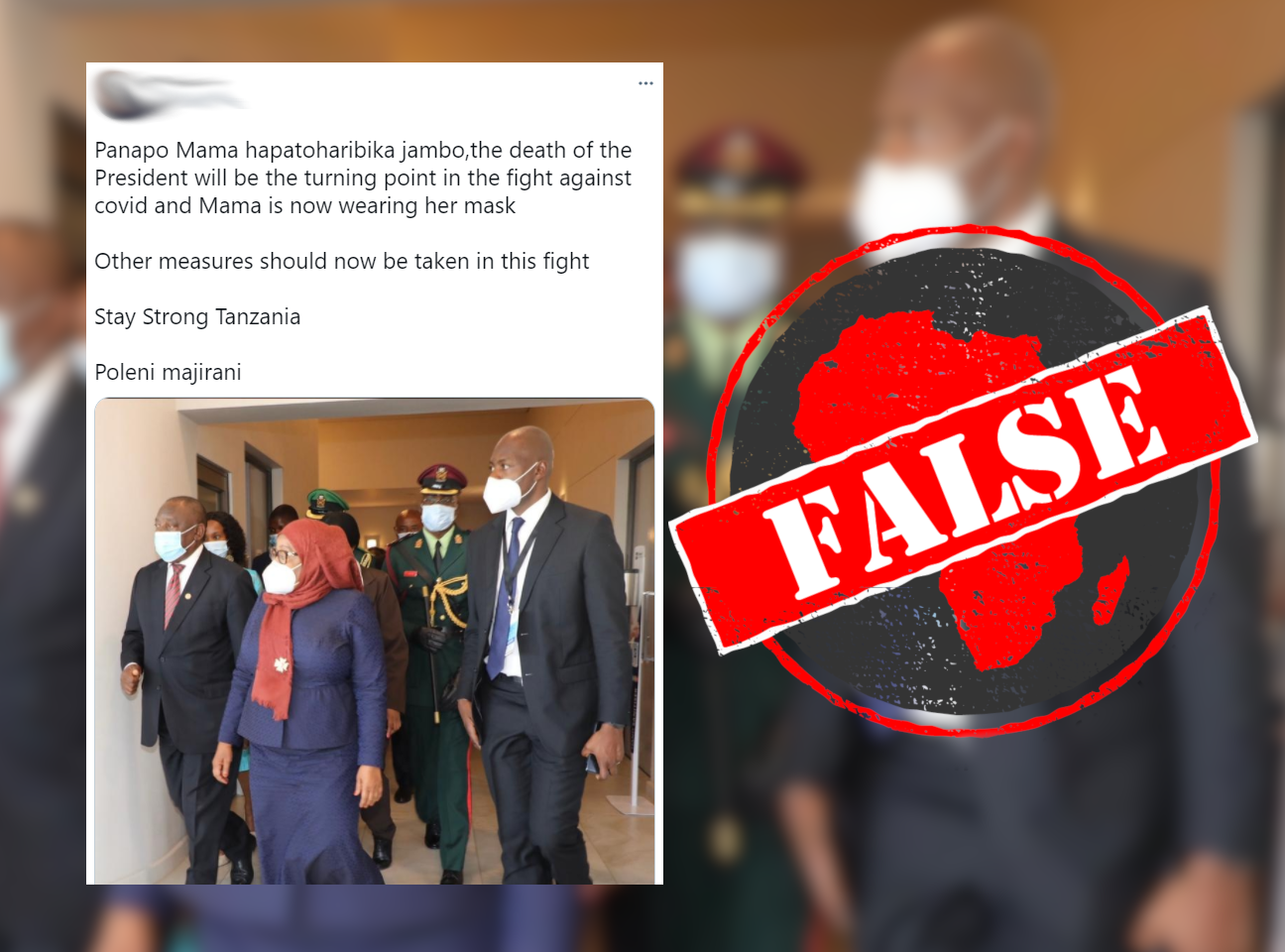Barely hours after the announcement of Tanzanian president John Magufuli’s death on 17 March 2021, a photo started circulating on social media which users claimed “proved” that Tanzanians had subsequently started wearing face masks to prevent the spread of Covid-19.
In one tweet, a photo shows Magufuli’s deputy Samia Suluhu Hassan, who since his death has served as president, wearing a mask.
The tweet reads, in part: “The death of the President will be the turning point in the fight against covid and Mama is now wearing her mask.” Mama, or mother, refers to Hassan.
Another Facebook user captioned the same photo: “When a leader acknowledges that Covid-19 exists and wears a mask, followers and citizens will also follow her. Magufuli’s denialism cost many lives as fanatics listened and followed his irrational Covid conspiracies!”
Magufuli “scoffed” at the coronavirus, denied the magnitude of the disease in Tanzania, advocated prayer in place of clinical interventions, and stopped reporting the number of infections in the country to international health authorities.
Does the photo of Tanzania’s new female president, masked, promise a change in the government’s much-criticised stance on the pandemic?
We investigated.

Photo from Gaborone, Botswana, November 2020
In response to the tweet sharing the photo, another Twitter user posted a screenshot of a tweet from Hassan’s official account, drawing attention to the 2020 date.
We found the original post from 27 November 2020, where the same photo was shared. Hassan tweeted, in Kiswahili, about attending the Southern Africa Development Community’s “Extraordinary Organ Troika Summit”.
This meeting took place in Gaborone, the capital of Botswana. According to a statement issued after the meeting, Hassan was representing Magufuli.
A Tanzanian online publication carried a story about the SADC event, with similar photos, on the same day.
The photo doesn’t show Hassan wearing a mask in Tanzania, hours after the death of Magufuli, and doesn’t indicate that Tanzanians started wearing masks immediately after his death.
However, in early April 2021, statements by Hassan appeared to signal a shift in Tanzania’s handling of Covid-19. She was quoted as saying it was “not proper to ignore” the virus and that her administration’s response would be “science-based”.
Republish our content for free
For publishers: what to do if your post is rated false
A fact-checker has rated your Facebook or Instagram post as “false”, “altered”, “partly false” or “missing context”. This could have serious consequences. What do you do?
Click on our guide for the steps you should follow.
Publishers guideAfrica Check teams up with Facebook
Africa Check is a partner in Meta's third-party fact-checking programme to help stop the spread of false information on social media.
The content we rate as “false” will be downgraded on Facebook and Instagram. This means fewer people will see it.
You can also help identify false information on Facebook. This guide explains how.





Add new comment